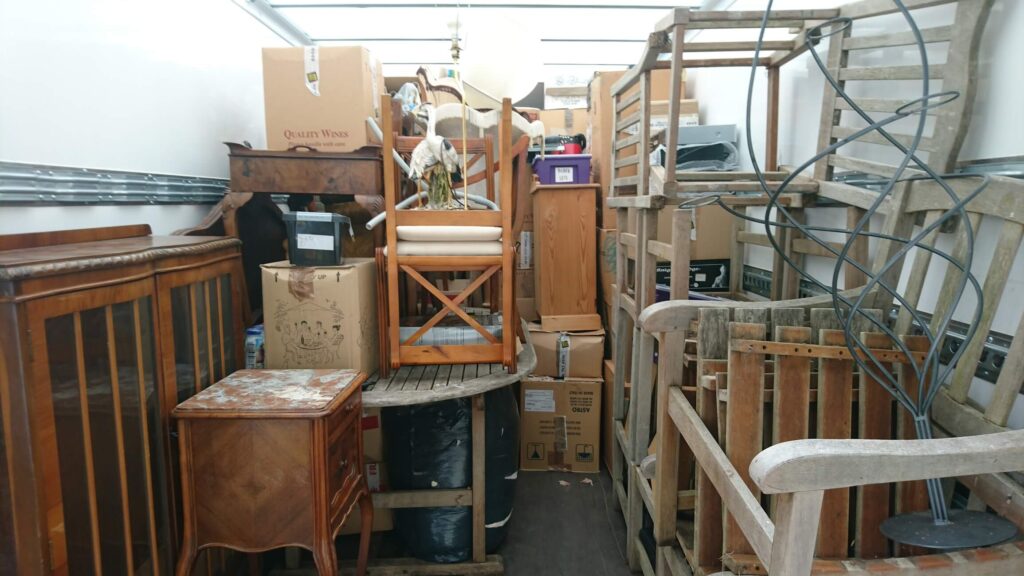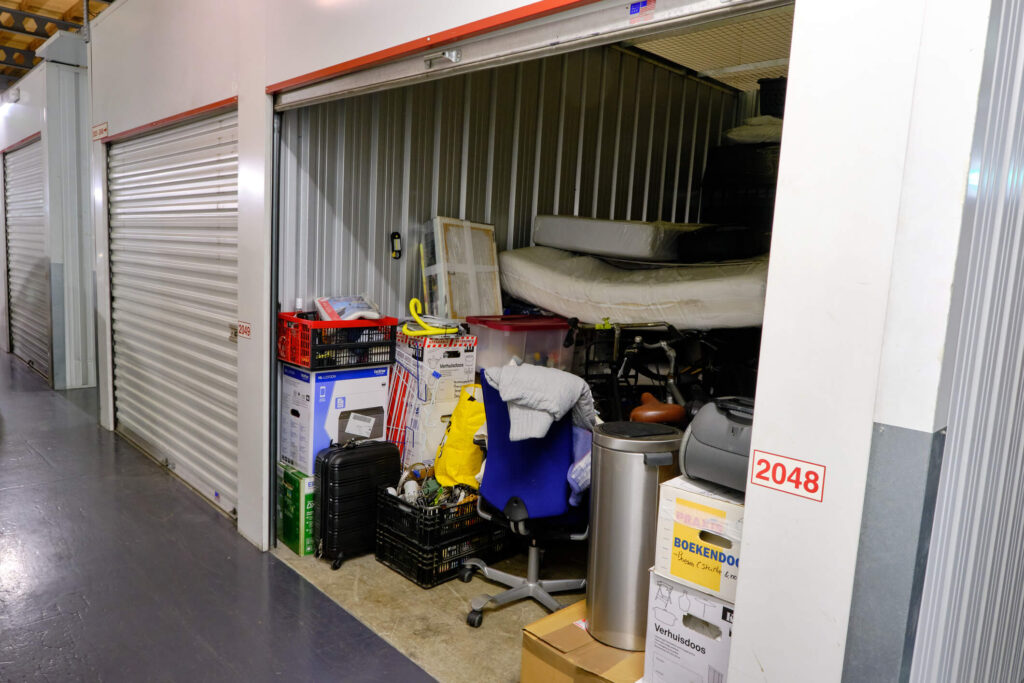Storage units are a convenient solution for housing belongings you may not have space for at home. Whether seasonal items, furniture, or sentimental keepsakes, these units provide a safe and secure environment. However, despite the best precautions, accidents can happen, and a storage unit gets damaged due to natural disasters, vandalism, or even negligence. When faced with a damaged storage unit, knowing how to navigate the situation effectively is essential. Here’s what you can do if your storage unit gets damaged.
Assess the Damage
When you discover or suspect that your storage unit has been damaged, it’s crucial to act immediately by visiting the site to evaluate the situation firsthand. Upon arrival, thoroughly inspect the unit and use your smartphone or camera to take comprehensive photos and videos from multiple perspectives.
Document every item that has been impacted, along with any clear indications of what might have caused the damage, like watermarks indicating flooding, scorch marks from a fire, or signs of a break-in such as a tampered lock or forced door.
Capturing this evidence in detail is vital, as these images and videos will serve as indispensable proof for your insurance claims and any necessary reports you file with the storage facility’s management. This initial documentation not only supports your claims but also helps in the accurate assessment and reimbursement for your losses.

Contact the Storage Facility
After assessing the property damage to your storage unit, it is crucial to promptly report the incident to the self-storage facility’s management. Provide detailed information about the extent and nature of the damage to ensure they have a full inventory of the affected valuables.
Most facilities are well-prepared for such occurrences and have established response protocols to handle these situations effectively. They can offer guidance, facilitate access to the damaged area, and work with you as part of their business operations to address the issue. Moreover, it’s essential to inquire about the facility’s liability protection under their insurance policies, which may cover damages under specific conditions.
Understanding these policies can clarify your rights as a tenant or renter, the facility’s contractual obligations, and the actions you may need to pursue to secure compensation for your losses.
Review Your Rental Agreement
When dealing with damage to your storage unit, it’s crucial to thoroughly review your rental agreement to fully grasp the storage facility’s policies regarding damage and liability. Typically, storage facilities have limited liability for personal goods stored within their units, meaning they are not responsible for damages unless proven that the damage was due to their gross negligence.
Understanding the details of your contract is essential as it outlines what types of damage are covered, such as water damage, floods, or problems caused by rodents, and under what circumstances you might expect compensation, if any, from the facility. This knowledge helps you set realistic expectations about the support and financial recovery you might receive in cases where your possessions, including boxes, family heirlooms, or other valuables, are affected.
Knowing your rights under the lease agreements can help alleviate headaches. In some instances, consulting with lawyers might be an option if the facility’s responsibility for safety is questioned.
In the case of severe damages where the facility offers no services to help, a lawyer can clarify whether there is any chance of claiming damages based on local laws or unusual causes like vandalism. This understanding is crucial as it influences your decisions regarding the safety and security of your stored items.
Contact Your Insurance Company
If you experience storage unit damage, whether from theft, vandalism, or an accident, and your items are insured, you must contact your insurance provider immediately to initiate a claim.
Start by supplying your insurer with all pertinent documentation and evidence you have collected, including detailed photographs, videos, and any communication records with the storage facility management.
Be prepared to discuss the loss of each item affected, providing extensive information about their value, including submitting purchase receipts, previous appraisals, or other proof of value you might have. This helps your insurer accurately assess the cost implications and the extent of harm caused.
As you navigate this procedure, your insurance company will offer step-by-step guidance and advice based on your insurance coverage and the specific factors related to the event. This advice is crucial, as it informs you about the best way to proceed under your policy’s terms and the damage’s state.
By understanding these processes, you’ll be better equipped to handle issues related to claims, ensure that everything necessary is done to mitigate additional problems, and optimize the chances of receiving appropriate compensation for your loss.
Engaging with these strategies not only aids in immediate recovery but also in preventing future incidents, safeguarding both your belongings and your peace of mind.

Retrieve Salvageable Items
Dealing with a damaged storage unit can be an overwhelming experience, but it’s crucial to focus on salvaging what you can. Start by carefully removing any items that remain in good condition from the unit and transferring them to a secure place to prevent further harm.
Depending on the nature and severity of the damage—such as from water exposure or fire—it might be necessary to hire professional cleanup and salvage crews that specialize in restoring items from such incidents.
As you manage these efforts, maintain meticulous records of all related expenses. This documentation is essential, as you can recover these costs through your insurance policy claims or even claim them as deductions on your taxes.
In addition, consider consulting an attorney who can provide answers about the law and the right course of action if the storage facility’s procedures or the response to vandals or other problems seem inadequate. An attorney can also help ensure that the storage service is held accountable and that tenants receive the compensation they deserve.
Keeping a detailed log will support your claims and help you navigate the complexities of such situations, ensuring you are adequately compensated for your losses and out-of-pocket expenditures.
Prevent Future Damage
After addressing the immediate aftermath of damage to your storage unit, it’s wise to take proactive measures to safeguard against future incidents. Investing in enhanced security features can significantly deter potential storage risks.
Consider options such as installing security cameras, motion sensors, or more robust locks to strengthen protection. If the damage originated from a natural disaster, assess the geographic vulnerability of the storage facility. Should the location be prone to such events, looking into alternative storage solutions in safer areas might be prudent.
Additionally, make it a routine to thoroughly inspect your storage unit and its immediate surroundings regularly. This regular check-up helps identify and mitigate any emergent hazards or security vulnerabilities, ensuring your stored possessions’ ongoing safety and integrity.
Conclusion
Dealing with a damaged storage unit can be a stressful experience, but knowing how to handle the situation can make the recovery process smoother. By assessing the damage, contacting the storage facility, filing an insurance claim, retrieving salvageable items, and taking preventive measures, you can minimize the impact of the damage and protect your belongings in the future. Remember to stay organized, keep thorough documentation, and seek professional assistance. With patience and perseverance, you can overcome the challenges a damaged storage unit poses and restore peace of mind.
Contact McDowell Mountain Community Storage Today!
At McDowell Mountain Community Storage, we prioritize the safety and security of your belongings in Scottsdale, Arizona. Our facility is designed to offer robust protection against various risks that could damage your stored items. We understand the importance of safeguarding your possessions, so our storage units are built to withstand various adverse conditions, ensuring a safe environment for everything from household goods to valuable collectibles.
If you ever face an unfortunate situation where your storage unit is compromised, our expert team is ready to guide you through the necessary steps to manage the situation effectively. We’ll help you understand how to assess the damage, communicate with insurance, and take appropriate actions to secure your belongings. For a detailed understanding of how we can assist you if your storage unit gets damaged or to learn more about our safety features, please contact us today at (602) 899-5484!
FAQs: What to Do If Your Storage Unit Gets Damaged?
1. What are the common causes of storage unit damage?
Storage units can be damaged due to natural disasters (like floods or earthquakes), vandalism, theft, or negligence, such as improper packing or inadequate maintenance.
2. How can I prevent damage to my belongings in a storage unit?
To prevent damage, use sturdy containers, wrap fragile items properly, avoid overloading boxes, and choose a facility with strong security measures and climate control options.
3. What should I include in my insurance policy for stored items?
Ensure your policy covers damage from theft, fire, flooding, and natural disasters, and consider adding specific coverage for high-value items.
4. Are storage facilities responsible for damage to my items?
Responsibility varies by facility; many have limited liability unless negligence can be proven. Always check the facility’s rental agreement for specific terms.
5. How often should I check on my storage unit?
Regularly inspecting your storage unit every few months is recommended to ensure everything is secure and in good condition, allowing you to catch any issues early.
6. Can I access my storage unit at any time?
Most facilities allow 24/7 access, but some may have restricted hours. Check with your facility for their specific access policies.
7. What should I do if I suspect my unit has been broken?
Report any suspicions immediately to the facility management, and document the situation with photos and notes before contacting local law enforcement.
8. Is it possible to receive compensation for damaged items?
Compensation depends on your insurance coverage, the storage facility’s policies, and the circumstances surrounding the damage. Always document everything for claims.
9. What steps can I take to secure my storage unit?
Use quality locks, install an alarm system, choose a facility with security cameras, and consider units with climate control to protect sensitive items.
10. Should I hire professionals to help with damaged items?
If your items have been significantly damaged (like by water or fire), hiring professional restoration services can help salvage and restore your belongings properly.


